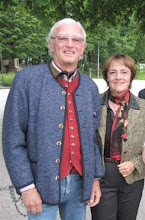PEACEKEEPING IN OUR TIME:
PAST THE AGE OF CONSENT?
By Jamie Arbuckle, for
Peacehawks
Introduction
Have
you heard the one about how many Peacekeepers it takes to change a light bulb?
Actually,
any number will do – but the light bulb has to want to change.
To
know where we are going, we need to know where we are, and to know that, we
usually need to know where we have been.
To look ahead, then, we often need to look back.
One
of the most critical factors in modern peace operations has, since the creation
of the United Nations, been the issue of consent to and the continuing support
for an operation. The UN is hard-wired for consensual operations;
it’s in the DNA, in the Charter:
Article
2.1: “The
Organization is based on the principle of the sovereign equality of all of its
members”; and
Article
2.7: “Nothing contained in the present Charter
shall authorize the United Nations to intervene in matters which are
essentially within the domestic jurisdiction of any state … “
The
consent issue has several forms; among these: the consent of the hosts and of
the parties to a conflict; of the people living in the conflict area; that of
the troop contributors to a peace force; and the consent of the major powers,
especially the permanent members of the Security Council of the UN (the P5).
The first two are often the most critical: we might refer to them as the
consent of the parties and the people. We certainly cannot ignore the
importance of the consent of the troop contributors – without them we have no
force, or of the Security Council – without them we have no mandate.
Nevertheless, I will generally focus on the issues of local consent: in
which I include the host government, the sub-state parties, and the people.
These, which I by no means take to be the same thing or even in some cases very
much alike, are nevertheless in my view collectively
the true conditio sine qua non
of a successful intervention.
There
has since late in the last century been a growing tendency to contemplate and
to mandate peace operations founded under Chapter VII of the Charter, which is
implicitly non-consensual in its tone and presumably, in its intent. It might seem that peace operations are
indeed beyond the age of consent. That
is in principle; however in practice peace operations have continued to be very conservatively
structured and even more cautiously
executed, and missions have continued to negotiate the terms and the
extent of operations specifically intended to enforce peace. This is no
less true of the current vogue for the Responsibility to Protect (R2P), than it
was of the rash of “enforcement operations” of the 1990s.
To
see why this has been, and largely remains, the case, I want to review the
origins of the issue of consent in peace operations, and see what that has subsequently come to mean.
To do this, we will review the first modern peacekeeping mission, the United
Nations Emergency Force, as it formed up
in the autumn of 1956, where the issue first arose and was to be of
fundamental importance. We will then fast-forward to Eastern Slavonia almost 40
years later, and we will visit there the birth-place of the practice –
and only later the concept – of “induced
consent.” (Alex Morrisson, the founder and President of the Pearson
Peacekeeping Centre in Nova Scotia, once said, while a student at the Canadian
Army Staff College, “It certainly seems to work in practice, but how will it
stand up in theory?) It is a large part of the story of peacekeeping that
practice often and necessarily precedes theory.
Finally, having established where we really are, we will peek briefly through that R2P
looking glass to see where we might be going with 21st Century peace
operations. As written, that “policy” largely describes non-consensual military
intervention to “protect”, but its authors have been back-pedalling on that
almost since before their ink was dry – and no wonder. We know what they said,
but it seems that may not have been what they meant, and we need to look
critically at this “new norm.” We can
only hope this will allow us at least a glimpse of what John le Carre has
called “the recent future”.
Sometimes,
to get ahead, we need to go back.
In
preparing this posting, I need to thank Russia, China and Syria, who in fanning
the flames of tragedy have provided me with further insight into the importance of consent at
multiple levels.
And
that is what I want to share with you in this posting.

